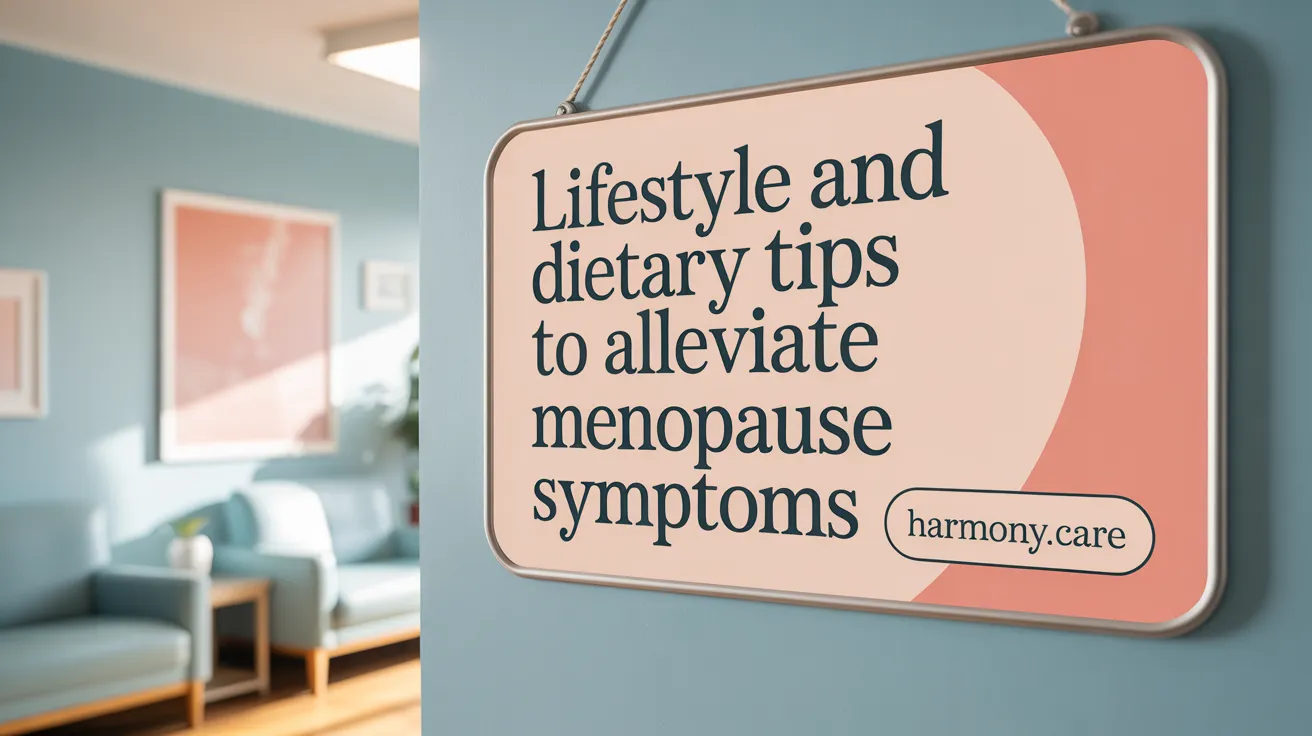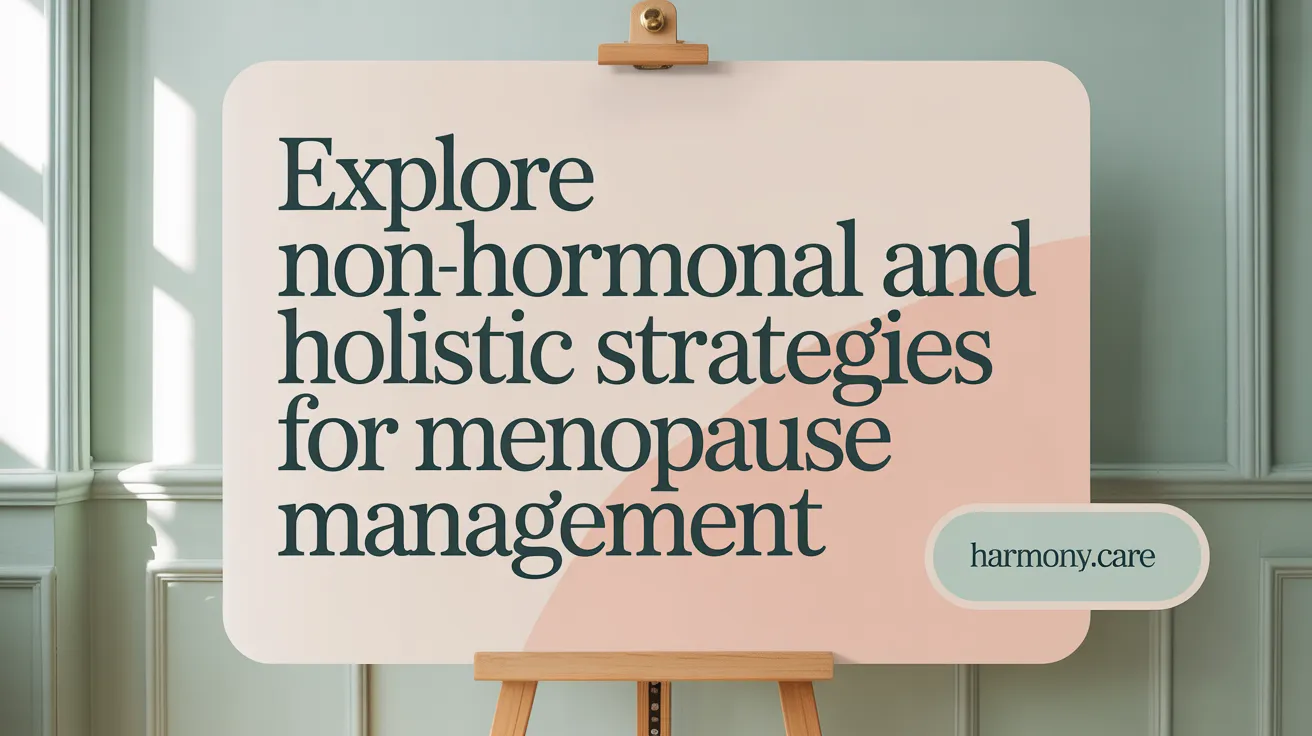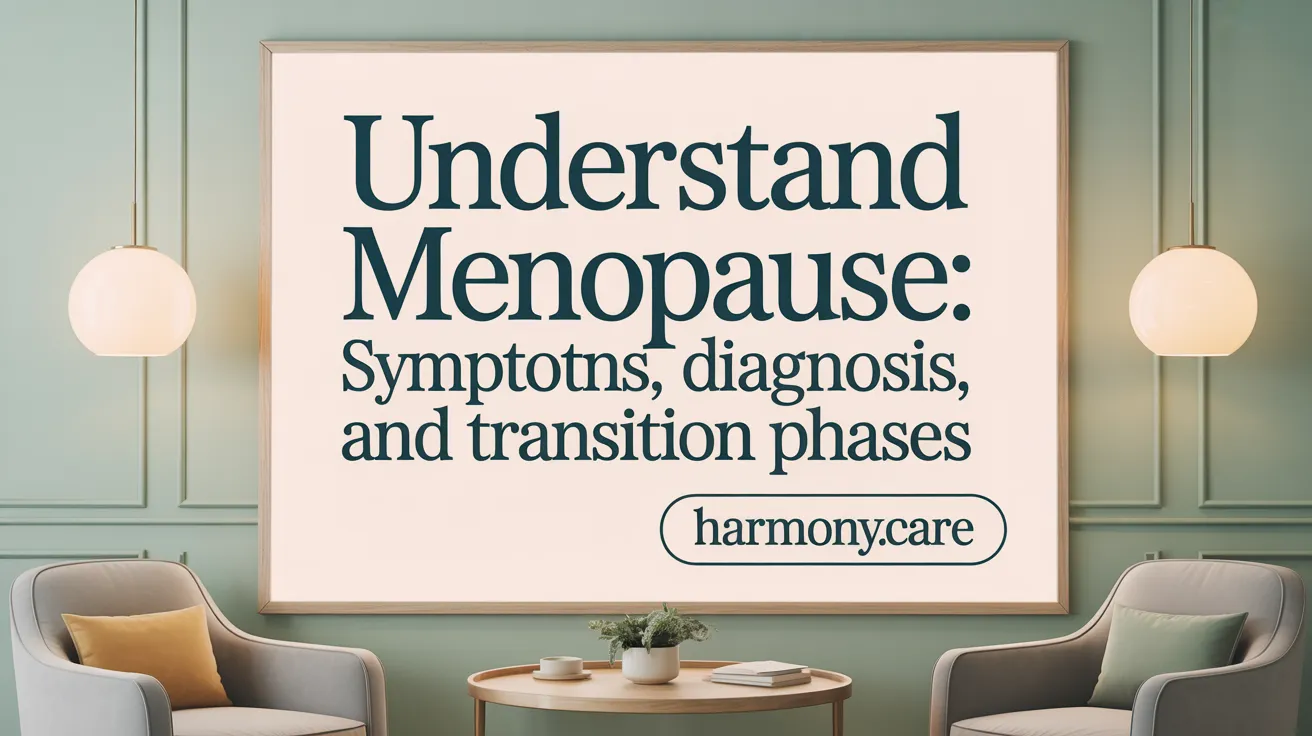Understanding the Integrative Approach to Menopause
Menopause is a significant phase in a woman's life marked by a range of physical and emotional changes. With increasing interest in holistic and patient-centered care, integrative health solutions have emerged as promising options for managing menopause symptoms. These approaches combine conventional medical treatments with evidence-based complementary therapies, aiming to optimize health, alleviate symptoms, and enhance quality of life during this transition. This article explores the spectrum of integrative care solutions for menopause, including mind-body practices, natural remedies, lifestyle modifications, and emerging research, helping women and healthcare providers make informed decisions about symptom management.
What Are Integrative Health Approaches for Managing Menopause Symptoms?
What are integrative health approaches for managing menopause symptoms?
Integrative health in menopause involves combining conventional medical treatments with complementary therapies rooted in traditional practices and emerging evidence. This holistic approach aims to support overall well-being during the menopausal transition.
Mind-body practices such as hypnosis, cognitive-behavioral therapy (CBT), mindfulness, yoga, and acupuncture have shown promise in reducing menopausal symptoms. These therapies can help decrease hot flashes, improve sleep quality, and alleviate mood-related issues like anxiety and depression. For example, yoga can reduce tension and inflammation, while acupuncture may promote hormonal balance and relaxation.
Lifestyle modifications are a central part of integrative care. Maintaining a healthy diet rich in phytoestrogens like soy and red clover, engaging in regular exercise such as aerobic activities and strength training, and managing stress through techniques like meditation and breath work can significantly improve quality of life. Avoiding hot flash triggers such as spicy foods, caffeine, alcohol, and smoking further supports symptom management.
The use of herbs and natural supplements, including black cohosh and soy isoflavones, is common among women seeking symptom relief. However, these should be taken under healthcare supervision due to potential interactions and varying efficacy.
Most importantly, treatment plans should be tailored to each woman. Healthcare providers trained in integrative medicine develop individualized strategies that consider personal health status, symptom severity, and preferences. Combining safe, evidence-based therapies ensures a comprehensive approach to managing menopause symptoms effectively.
Evidence-Based Therapies and Holistic Options in Menopause Management
Many women seek relief from menopause symptoms through both scientifically supported treatments and complementary approaches.
Medical options include hormone replacement therapy (HRT), which is effective for hot flashes, night sweats, and vaginal dryness. Alternatives like selective estrogen receptor modulators (SERMs) and non-hormonal medications such as selective serotonin reuptake inhibitors (SSRIs), serotonin-norepinephrine reuptake inhibitors (SNRIs), and gabapentin also help manage symptoms. For example, the FDA-approved drug fezolinetant works by regulating brain temperature pathways to decrease hot flashes.
Lifestyle modifications form the foundation of holistic management. Regular exercise, including yoga and strength training, can reduce hot flashes, support bone health, and enhance mood. A balanced diet rich in soy isoflavones, omega-3 fatty acids, and calcium contributes to symptom relief and overall well-being. Additionally, practices like yoga, mindfulness, meditation, and stress management techniques improve sleep, diminish anxiety, and promote relaxation.
Complementary therapies offer additional options. Acupuncture has shown promise in decreasing hot flashes, improving sleep, and reducing anxiety, although study results vary. Herbal supplements such as black cohosh, red clover, and evening primrose oil are popular but demonstrate inconsistent evidence regarding their effectiveness, necessitating medical supervision due to potential side effects.
Psychological approaches like hypnosis and cognitive behavioral therapy (CBT) have been proven to significantly reduce hot flashes and improve sleep quality. Hypnosis, in particular, has demonstrated a clinically meaningful reduction in vasomotor symptoms.
Importantly, individuals should consult healthcare professionals to tailor treatments appropriately. Many complementary therapies require professional supervision to ensure safety and efficacy, especially herbal products that may interact with medications.
In summary, an integrated approach combining evidence-based medical therapies, lifestyle changes, and holistic options can effectively alleviate menopause symptoms, improve quality of life, and support overall health during this transition.
Complementary and Alternative Medicine Treatments: Benefits and Limitations
Many women exploring menopause symptom relief turn to complementary and alternative medicine (CAM) options. These approaches include mind-body practices, herbal remedies, and physical therapies, each with varying evidence of effectiveness.
Hypnosis stands out as an effective CAM treatment, with multiple studies showing significant reductions—sometimes exceeding 50%—in hot flashes. Additionally, hypnosis can help improve sleep quality and sexual function. Its relaxing nature helps modulate physiological responses associated with menopause symptoms.
Cognitive Behavioral Therapy (CBT) and mindfulness-based stress reduction (MBSR) are also commonly used. These therapies effectively enhance mental health, reduce stress, and improve overall quality of life. While they may not directly lessen hot flashes, they are valuable for managing menopause-related emotional and sleep disturbances.
Herbal therapies such as black cohosh and soy isoflavones have been widely used, but research results are inconsistent. Black cohosh, especially formulations like Remifemin, has shown potential in reducing hot flashes, but evidence varies, and safety concerns exist, including possible interactions with other medications. Soy isoflavones may help some women experience fewer hot flashes, but their benefits are modest and not universally established.
Acupuncture has gained popularity for managing vasomotor symptoms. Some studies report reductions in hot flashes and night sweats, but results are mixed. Importantly, placebo effects are difficult to exclude, and further research is needed to confirm specific benefits beyond placebo responses.
For all CAM therapies, safety is a central concern. Natural products can interact with prescription medications, and not all herbal remedies are standardized or regulated for quality. Therefore, consulting healthcare providers before starting any new CAM practice or supplement is essential.
In summary, CAM treatments such as hypnosis, CBT, and acupuncture can offer symptom relief and improve emotional well-being during menopause. However, individual responses vary, and their use should always be under medical guidance to ensure safety and appropriateness.
Lifestyle Modifications and Dietary Recommendations for Menopause

What lifestyle modifications and dietary recommendations can help manage menopause symptoms?
Managing menopausal symptoms involves a combination of healthy lifestyle choices and dietary adjustments. Regular physical activity, especially weight-bearing and resistance exercises, supports bone health and can reduce the severity of hot flashes. Incorporating yoga and meditation as stress reduction techniques helps improve mood, decrease anxiety, and enhance sleep quality.
A nutrient-rich diet plays a vital role in symptom management. Increasing intake of calcium (found in dairy, leafy greens, and salmon), vitamin D (via sun exposure and supplements if necessary), and phytoestrogens (present in soy, flaxseed, and red clover) can support hormonal balance and reduce hot flashes. It is advisable to limit triggers such as caffeine, alcohol, and spicy foods, which may exacerbate symptoms.
Lifestyle modifications like quitting smoking and maintaining a healthy weight are also crucial, as these habits decrease the risk of osteoporosis and cardiovascular issues associated with menopause. Simple measures like dressing in layers, managing room temperature, and practicing relaxation techniques can help control hot flashes and night sweats. These combined strategies aim to improve overall quality of life during menopause and address key symptoms effectively.
Natural Remedies Popular for Alleviating Menopause Symptoms
What natural remedies are commonly used to alleviate menopause symptoms?
Women often turn to natural remedies to manage menopausal discomforts such as hot flashes, night sweats, mood swings, and vaginal dryness. Herbal supplements like black cohosh, evening primrose oil, ginseng, and red clover are among the most popular choices. These remedies aim to alleviate specific symptoms, but scientific evidence supporting their effectiveness remains mixed. For instance, some studies suggest black cohosh may help reduce hot flashes, while others show inconsistent results.
In addition to supplements, foods rich in phytoestrogens—plant compounds that mimic estrogen—are frequently recommended. Soy and flaxseed are two common sources. Although they contain compounds that might lessen menopausal symptoms, research findings are varied; some studies report benefits, while others show minimal effects.
Topical products like vitamin E oil are used by some women to address vaginal dryness and hot flashes, providing localized relief without systemic medication. Behavioral strategies also play a significant role. Avoiding triggers such as caffeine, alcohol, and spicy foods can lessen symptoms. Regular physical activity, including aerobic exercises and yoga, along with mindfulness practices such as meditation, can improve sleep quality and emotional well-being.
Because supplements and herbal remedies can interact with other medications or underlying health conditions, consulting a healthcare professional before use is essential. Guided medical advice ensures safety and helps tailor treatments to individual needs to minimize risks and optimize symptom reduction.
Scientific Evidence and Safety of Integrative Menopause Therapies
Current research supports the use of various integrative approaches for managing menopausal symptoms, but the strength of evidence varies across therapies. Hypnotherapy and cognitive-behavioral therapy (CBT) are considered safe options with proven effectiveness in reducing hot flashes, sleep issues, and emotional distress. Notably, hypnosis has shown a clinically significant reduction in vasomotor symptoms, often comparable to pharmacological treatments, making it a valuable non-drug option.
On the other hand, herbal supplements such as black cohosh, red clover, and flaxseed yield mixed results in scientific studies. Some formulations, like certain black cohosh extracts, may alleviate symptoms, but overall evidence remains inconsistent and safety profiles are not always well-established, highlighting the need for cautious use under healthcare supervision.
Acupuncture has been widely used for menopausal symptom relief, yet research findings are conflicting. Some studies report significant benefits, including reduced hot flashes and improved sleep, while others show limited effects, emphasizing the need for further rigorous trials.
Hormone replacement therapy (HRT), particularly estrogen, remains the most effective treatment for menopausal vasomotor symptoms and osteoporosis prevention. When appropriately prescribed for women within 10 years of menopause onset and under age 60, its benefits generally outweigh risks. However, potential adverse effects, such as increased risks of breast cancer, blood clots, and stroke, require careful individual risk assessment.
Newer non-hormonal options like NK3/NKB receptor antagonists are emerging as promising therapies for hot flashes, but they are still under clinical investigation. Their potential benefits could offer alternatives for women who cannot or prefer not to use hormones.
Given the variety of available therapies, personalized care plans developed by healthcare providers experienced in integrative medicine are crucial. Regular monitoring ensures safety, helps manage any adverse effects, and optimizes therapeutic outcomes.
| Therapy Type | Evidence Strength | Main Benefits | Risks/Considerations |
|---|---|---|---|
| Hypnotherapy & CBT | Strong | Hot flash reduction, better sleep, mood | Minimal; need trained practitioners |
| Herbal Supplements | Mixed/Inconclusive | Potential relief, vary by herb | Possible interactions, safety concerns |
| Acupuncture | Conflicting | Symptom relief, improved well-being | Variable effects, need for qualified practitioners |
| Hormone Replacement Therapy | Well-established | Vasomotor symptom relief, bone health | Risks of cancer, clots, stroke; contraindications |
| Emerging Therapies | Under investigation | Promising future options | Long-term safety and efficacy unknown |
In summary, integrating evidence-based mind-body practices, cautious use of herbal products, and tailored hormonal or non-hormonal medications under professional guidance provides a comprehensive strategy for menopausal management. Ongoing research continues to refine these options, emphasizing the importance of personalized care to ensure safety and effectiveness.
Comprehensive Management Strategies for Menopause Symptoms
What comprehensive management strategies are recommended for menopause and its symptoms?
Managing menopause effectively requires a personalized, multi-faceted approach that combines medical, lifestyle, and psychological strategies to improve quality of life. Hormone therapy (MHT), which includes estrogen alone or in combination with progestogens, is considered the most effective treatment for vasomotor symptoms like hot flashes and vaginal dryness. However, assessing individual risk factors and contraindications through health evaluations is essential before starting hormone therapy.
Beyond hormone treatments, non-hormonal options play a crucial role. Cognitive-behavioral therapy (CBT) has been shown to help reduce hot flash interference and improve emotional well-being. Lifestyle modifications—such as maintaining a healthy weight, engaging in regular physical activity, quitting smoking, and avoiding triggers like spicy foods, caffeine, and alcohol—can further alleviate symptoms. Additionally, use of vaginal lubricants and moisturizers can effectively address vaginal dryness.
Supplemental support for bone and heart health includes calcium and vitamin D supplementation, along with weight-bearing exercises to maintain bone density and cardiovascular health. Regular medical check-ups allow providers to monitor symptoms, medication effects, and detect any adverse effects early.
Finally, exploring functional medicine labs can help uncover underlying causes of symptoms, guiding targeted interventions. Overall, integrating hormonal, non-hormonal, lifestyle, and supportive therapies forms a holistic approach to managing menopause, promoting health and well-being through this natural life stage.
The Role of Non-Hormonal and Holistic Approaches in Symptom Relief

How do non-hormonal and holistic approaches help in symptom relief during menopause?
Women seeking alternatives to hormone therapy often turn to non-hormonal and holistic methods to manage menopause symptoms. These approaches aim to reduce discomfort while minimizing risks associated with traditional hormone treatments.
Mind-body therapies such as cognitive behavioral therapy (CBT), mindfulness practices, yoga, and meditation are known to decrease stress, improve sleep quality, and lessen hot flashes and emotional fluctuations. For example, research indicates that hypnosis can lead to significant reductions in hot flashes and sleep disturbances.
Acupuncture and massage therapy are also popular options. Acupuncture, which promotes relaxation and improves blood flow, can help alleviate hot flashes and inflammation. Massage therapy enhances relaxation, relieves tension, and eases joint or muscle pain.
Pharmacological non-hormonal options include medications like selective serotonin reuptake inhibitors (SSRIs), which can reduce hot flashes and mood symptoms. Drugs such as oxybutynin and clonidine are sometimes used to manage vasomotor symptoms and urinary issues.
Lifestyle adjustments further support symptom reduction. Regular physical activity, particularly aerobic and strength training exercises, can decrease hot flashes, improve cardiovascular health, and boost mood. A diet rich in phytoestrogens, such as soy or red clover, may have mild benefits in reducing hot flash frequency.
Avoiding known triggers like caffeine, spicy foods, and alcohol can also lessen symptoms. Maintaining a healthy weight and supporting good sleep hygiene are additional practical strategies.
It is essential for women to work closely with healthcare providers experienced in integrative medicine to develop personalized plans. Proper guidance ensures safe use of herbal supplements and non-hormonal medications, avoiding adverse interactions.
In sum, non-hormonal and holistic strategies offer effective, safe options for women seeking to manage menopause symptoms naturally. These approaches emphasize stress reduction, lifestyle changes, and complementary therapies, contributing to improved quality of life during menopause.
Understanding Menopause: Symptoms, Diagnosis, and Phases

What is menopause and at what age does it usually occur?
Menopause marks the end of a woman's reproductive years, defined by the absence of menstrual periods for 12 consecutive months. It typically occurs between the ages of 45 and 55, with the average age around 52. This natural process signifies the decline of ovarian function and hormone production.
What are the stages of menopause and what do they involve?
Menopause does not happen all at once; instead, it includes several phases:
- Perimenopause: The transition phase where hormonal fluctuations cause irregular periods and symptoms like hot flashes and mood swings.
- Menopause: The point when menstrual cycles have ceased for a year.
- Postmenopause: The years following menopause, often marked by continued symptoms and increased health risks such as osteoporosis.
What are common menopause symptoms and how is it diagnosed?
Women experience a variety of symptoms, including hot flashes, night sweats, sleep disturbances, vaginal dryness, mood swings, and decreased libido. Diagnosis primarily relies on clinical symptoms and history. While blood tests measuring hormones such as FSH (follicle-stimulating hormone) and estrogen can support diagnosis, they are not always necessary because hormone levels fluctuate.
How can menopause be confirmed or diagnosed?
Most women can recognize menopause based on symptoms and menstrual history. In some cases, healthcare providers may perform hormone testing or review other health indicators. Elevated FSH levels are often associated with menopause, but because hormone levels can vary, clinical judgment remains essential.
What should women know about the natural progression and health considerations?
Experiencing menopause is a natural phase. Managing symptoms effectively involves a combination of lifestyle changes, medical treatments, and sometimes integrative approaches to support overall well-being. Attention to bone health, cardiovascular health, and emotional well-being is crucial during this stage.
Integrative Clinics and Collaborative Care Models

Example of UCLA’s integrative menopause program
UCLA’s menopause program exemplifies a comprehensive approach to managing symptoms through integration of modern medicine with traditional Chinese medicine (TCM). This program partners with the UCLA Center for East-West Medicine (CEWM) to provide women access to a variety of therapies tailored to their needs. Patients can benefit from a combination of lifestyle modifications, herbal therapies, acupuncture, and conventional treatments all within a coordinated framework.
Collaboration between biomedical and traditional therapies
This integrative model emphasizes collaboration among clinicians trained in internal medicine, family medicine, and integrative medicine. These experts work together to develop treatment plans that combine biomedicine, TCM, and other complementary approaches. For example, acupuncture is used to promote relaxation and hormone balance, while conventional medications may address specific issues such as osteoporosis or severe hot flashes.
Development of individualized plans by multidisciplinary clinicians
Each woman receives a personalized treatment plan created by a team of specialists. These plans account for her unique symptoms, health history, and preferences. Strategies may include herbal supplements, lifestyle changes, mind-body practices like yoga or meditation, and targeted hormone therapy if appropriate. The approach ensures holistic care that supports overall wellness.
Whole system approaches including TCM and functional medicine labs
The program integrates whole system therapies such as TCM involving diet, stress reduction, herbal teas, and acupuncture. Additionally, functional medicine labs are utilized to explore the root causes of symptoms. Tests like hormone panels, micronutrient assessments, and neurotransmitter profiling help inform tailored interventions, optimizing outcomes.
Importance of initial integrative health consultation
An initial consultation with an integrative health provider is essential. This visit helps establish a comprehensive understanding of the woman’s symptoms, health background, and goals. From there, clinicians can recommend suitable therapies, monitor progress, and adjust treatments to maximize benefits. This collaborative and personalized approach supports improved symptom management and enhances quality of life during menopause.
Practical Tips to Implement an Integrative Care Plan

Initial consultation and assessment
Begin with an appointment with a healthcare provider trained in integrative health. This specialist can conduct a comprehensive evaluation of your symptoms, medical history, and lifestyle factors. They may recommend hormone testing, such as the DUTCH Complete, or other laboratory assessments to identify root causes of symptoms. Accurate assessment helps tailor an effective, individualized treatment plan.
Incorporating mind-body practices and natural products
Integrative care often includes mind-body approaches like yoga, meditation, massage therapy, and hypnotherapy, which are supported by research to alleviate hot flashes, stress, and sleep issues. Natural supplements such as black cohosh, soy isoflavones, or red clover can be considered, but they should be used under professional guidance to ensure safety and avoid interactions.
Dietary and lifestyle adjustments
Adopting a nutritious diet rich in calcium, vitamin D, and phytoestrogens from foods like soy and flaxseed can help manage symptoms. Regular physical activity, including weight-bearing and strength training exercises, supports bone health and mood. Avoid triggers like caffeine, alcohol, and spicy foods, which may worsen hot flashes.
Monitoring treatments and symptom changes
Keep track of your symptoms, treatment responses, and any side effects. Regular follow-ups with your provider allow adjustments to therapies such as herbal supplements, acupuncture, or hormone therapy. Blood tests may be repeated to monitor hormone levels and overall health. This ongoing monitoring ensures safe and effective symptom management.
Patient education and resource availability
Empower yourself with information from trusted sources and programs like UCLA's integrating health model. Use available tools and resources for nutrition, breathing exercises, yoga, and guided imagery. Understanding the benefits and risks of various therapies helps you make informed decisions and participate actively in your menopausal health plan.
Embracing Integrative Care for a Balanced Menopausal Journey
Integrative care solutions for managing menopause symptoms offer a balanced, comprehensive approach that combines the strengths of conventional medicine with complementary therapies and lifestyle modifications. By addressing the physical, emotional, and psychological aspects of menopause, this approach empowers women to find personalized and evidence-informed strategies to enhance their well-being during this life phase. Collaboration with knowledgeable healthcare providers ensures safe, effective management tailored to individual needs, supporting not only symptom relief but also long-term health. Embracing integrative care transforms menopause from a challenge into an opportunity for holistic health and vitality.
References
- Integrative Health - Comprehensive Menopause Care
- Managing Menopause: How Integrative Care Can Help
- Menopausal Symptoms and Complementary Health ...
- An Integrative Medicine Approach to Managing ...
- Menopause - Diagnosis and treatment
- Complementary and Alternative Medicine for Menopause
- Menopause: An Integrative Approach
